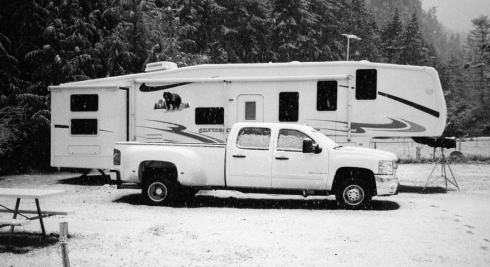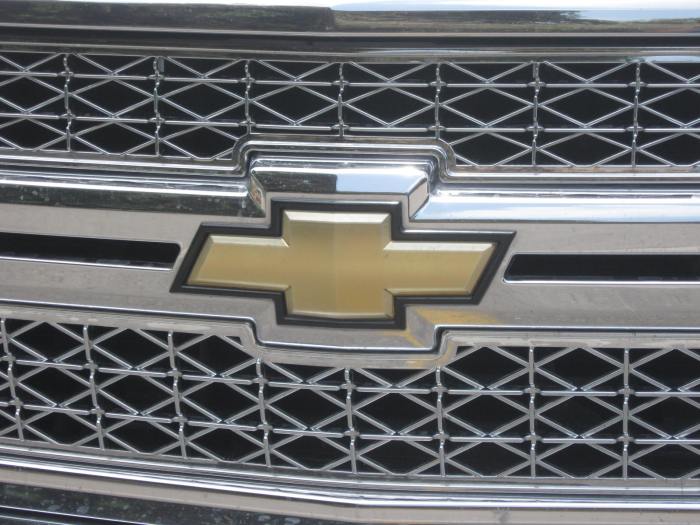It is rather interesting for us to sit down and watch the Weather Channel on TV these days. This has been a winter of rather odd and extreme weather.
Last winter we stayed on the North Olympic Peninsula (WA). This season it appears that Mother Nature is giving the state of Washington a little bit of everything she has to offer! We have been shaking our heads in disbelief wondering what we would be doing now if we were there this winter.
Wintering in a RV is not as miserable as it may sound to most folks. We have met a number of Campers who enjoy RVing in the wintertime. If you are prepared for the weather, it is definitely a rewarding experience.
Most books on RVing discuss winterizing your rig and RV websites offer suggestions on everything from tank wrapping to banking heat.
The main thing to remember about winter camping is that you have to be self-sufficient. You can’t rely on electricity if a snow or ice storm brings down trees or utility lines. And you can’t rely on driving to get propane when your tanks run out because the roads may be snowy, ice or blocked with downed trees. Campgrounds are often located outside main power grid zones and when the electricity goes out, they are usually the last locations to get the power back on.
When you winter camp, you must plan on relying on yourself in the event of an emergency. In a sense, you have to prepare to boondock, even if you are in a 5-star RV resort!
The problem we have found with fellow RVers who attempt to winter camp is they don’t understand about maintaining their heat. Most RVs don’t have curtains (or “real” curtains that function as stick-house curtains do). Although our fifth-wheel has thermopane windows, day/night shades (these are blinds that most newer RVs have – they are great, but no substitute for insulation) and partial RV curtains, we could still feel cool air around our windows. So we had custom-made curtains (with black-out) made for each window area. This helps hold in the heat in winter (and the air-condition in summer).
We also have skylights, which can be a source of heat-loss. We purchased insulated covers (that velcro on) from a camper dealer. During the day when the sun is out (and hopefully temps are warmer) we remove the covers. In the late afternoon when temps usually begin dropping, we place the covers on again.
We layer our clothing during winter. It keeps you insulated and you aren’t kicking up your propane furnace every ten minutes!
In cold weather we run a small electric ceramic heater on low during the day. We reverse the switch on our ceiling fan to force heat throughout our fifth-wheel. Do not leave a ceramic heater unattended! And when you purchase one, make sure it has a switch to control the temperature and will automatically turn off it tilted or flipped over. Ceramic heaters are rather inexpensive (less than a tank of propane!) and are great ways to bank your heat during the day.
In the evening we keep the ceramic heater on (still the low setting) but turn the temperature up just a little higher. We turn our propane furnace on, yet keep it at a lower setting, knowing the ceramic heater will keep us nice and toasty when the temps drop below freezing.
Just make sure that the campground or RV park you are staying at doesn’t have a rule against ceramic heaters. Some parks will toss you out without a refund if you have one.
The use of a ceramic heater helps us save propane in case of a power outage. Although we do carry extra propane with us, as we have a propane generator, it is foolish to waste it in winter conditions. We have went several days without power in the winter and the nearest propane company (that was able to pump propane with the weather) was over twenty miles away. A rather long drive in icy conditions!
Wintering in a RV is a great experience if you are prepared for it. There are a number of books and places on the internet where you can read about winter camping. Just remember that being self-sufficient is the most important thing for a winter Camper!
UPDATE 2013: Although this is winter camping under “normal” winter conditions. Recent winter “super” storms have proven that Mother Nature isn’t “average”. If you find your under a Winter Storm watch or warning, follow the advice given by authorities. And remember, property can be replaced – lives can’t.















